Enemies shell six settlements in Kharkiv region, woman killed in Kupiansk
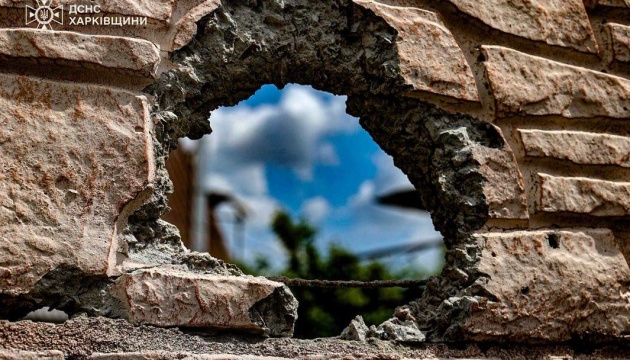


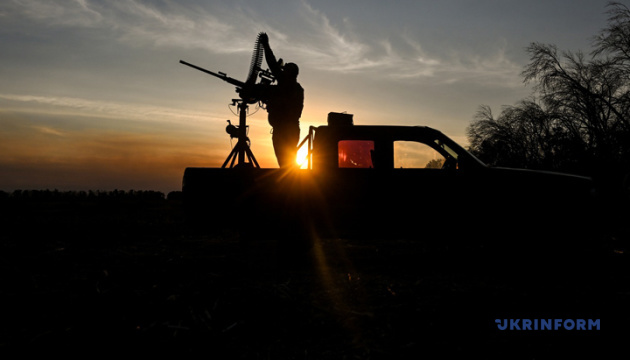


Ukrainian leader was joined by first lady Olena Zelenska as he plans to appeal for sanctions against Russia

© AFP via Getty

© Copyright 2025 The Associated Press. All rights reserved.


© Copyright 2024 The Associated Press. All rights reserved
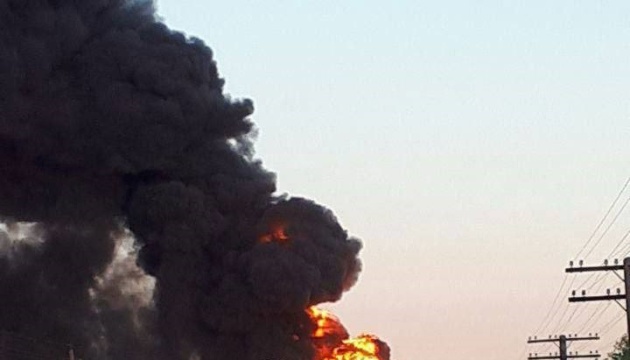

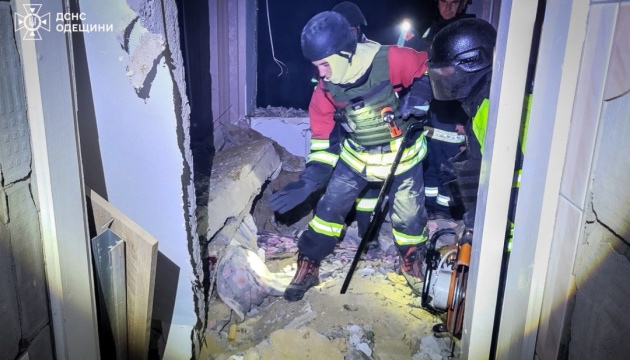

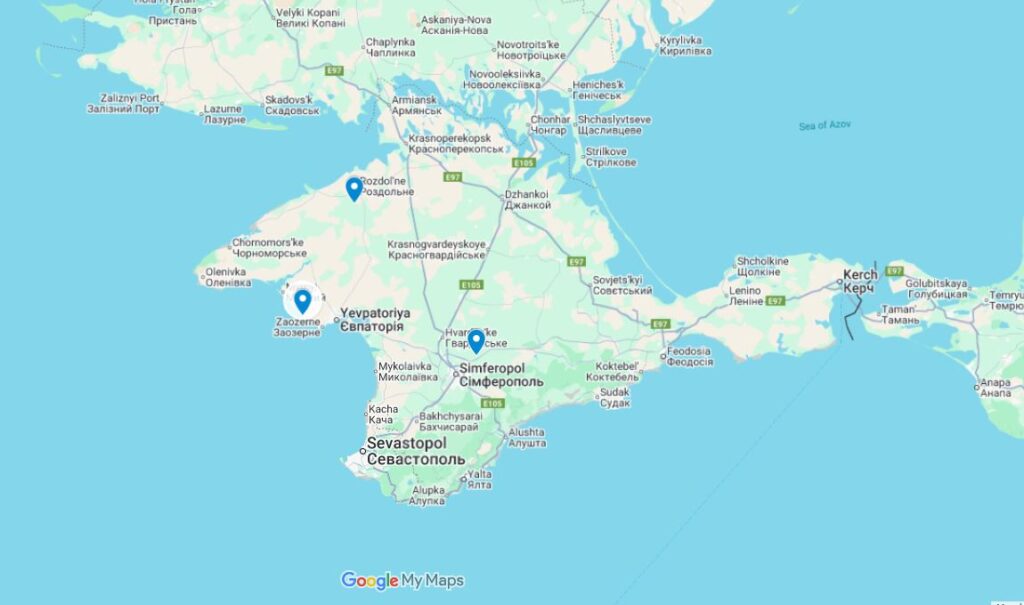

A Russian news Telegram channel, Astra, has confirmed that a Ukrainian missile and drone strike on occupied Crimea caused substantial damage to Russian military infrastructure overnight on 21 September. Russian Telegram channel Astra cited emergency service sources in detailing the aftermath of the attack.
Astra reported that the 21 September strike targeted at least three separate locations used by Russian forces in Rozdolne, Simferopol, and Saky districts. The attack reportedly involved both drones and, likely, Neptune cruise missiles.
In northwestern Crimea’s Rozdolne district, two strike drones hit a column of the 31st air defense division near the village of Volochaivka. The drones reportedly destroyed a radar installation of an unspecified model that was part of the mobile air defense unit.
In the Simferopol district, central Crimea, Astra said another drone exploded near the village of Donske, damaging a mobile Pantsir-S1 air defense system. One Russian serviceman was reportedly injured in this strike.
Beyond mobile systems, the strike also hit support facilities used by the same air defense division. According to Astra, two additional strikes—likely carried out with Neptune cruise missiles—damaged several buildings belonging to the 31st division near the village of Vityne in the Saky district in Crimea’s west. These included a barracks, a military club, a training building, and a canteen.
On the day of the attack, the Russian Ministry of Defense claimed that its forces intercepted 12 drones over Crimea and 4 more over the Black Sea during the night.
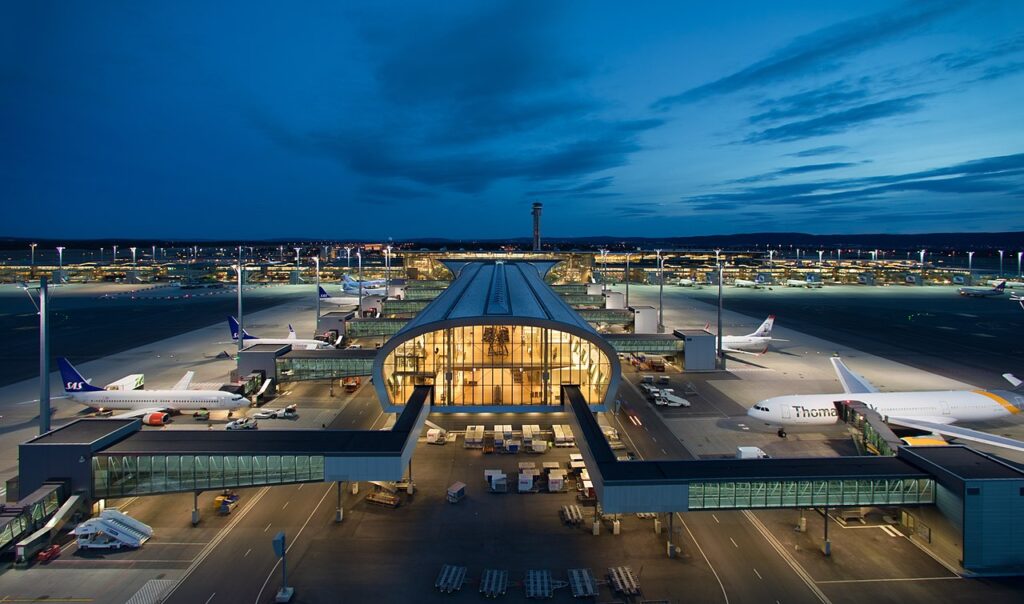

Two major Nordic airports shut down overnight due to drone sightings but resumed operations before dawn. The incidents at Copenhagen and Oslo disrupted dozens of flights and triggered investigations in both Denmark and Norway. The drones “disappeared” before they could be recovered, and no drone was identified or captured.
Late on 22 September, authorities in Denmark and Norway halted all flight operations at their main airports after drones were spotted in restricted airspace. According to Reuters, Copenhagen Airport suspended all takeoffs and landings from 20:26 local time, citing reports of two or three large drones near its airspace. Around 50 flights were diverted to other airports, FlightRadar reported, according to Suspilne.
Reuters cited Copenhagen Police Deputy Assistant Commissioner Jakob Hansen, who said, “The police have launched an intensive investigation to determine what kind of drones these are. The drones have disappeared and we have not taken any of them.” Hansen added that Danish and Norwegian police would investigate possible links between the two incidents.
Oslo Gardermoen Airport followed with its own shutdown after drone activity was observed overhead, including near the Akershus Fortress, according to Suspilne. Reports of drones first came in around 23:30. At first, traffic was moved to a single runway, but after another drone was spotted, all operations were suspended. The airspace was reopened by 03:22, according to Norway’s Avinor.
VG reported that at least 12–14 flights were diverted from Oslo. Communication chief Monica Fasting at Oslo Airport told VG that six cancellations were reported by early morning and more delays were expected throughout the day. She confirmed to NTB that airspace was shut down for safety reasons.
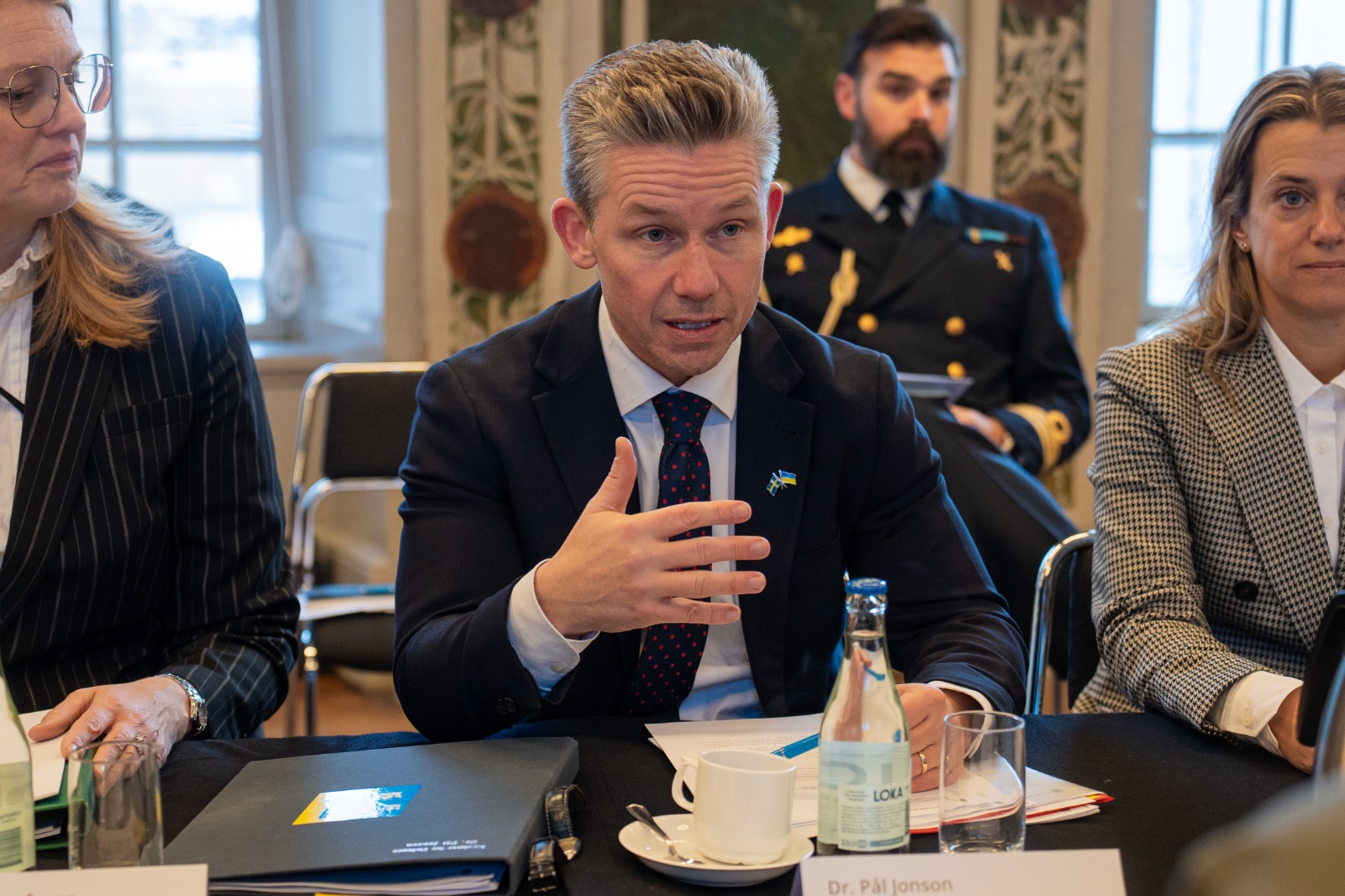
Oslo police operations leader Gisle Sveen told VG that law enforcement had not been able to confirm the presence of drones within the restricted zone. Another police official, Pål Bjelland, said authorities were collecting reports to determine whether the sightings were actually drones or other flying objects.
Norwegian police said two individuals had been detained for illegal drone activity in Oslo earlier on 22 September. PST, Norway’s security service, is monitoring the situation. In Denmark, PET and the Danish military are also involved in the investigation.
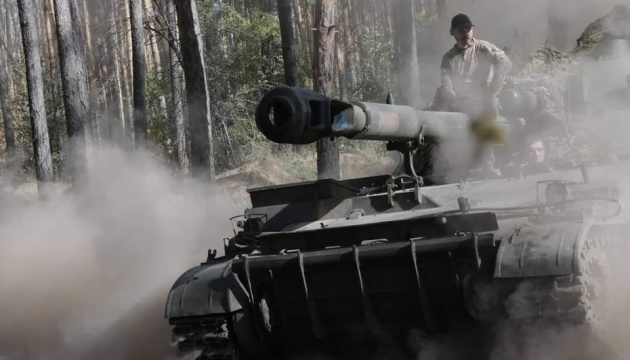



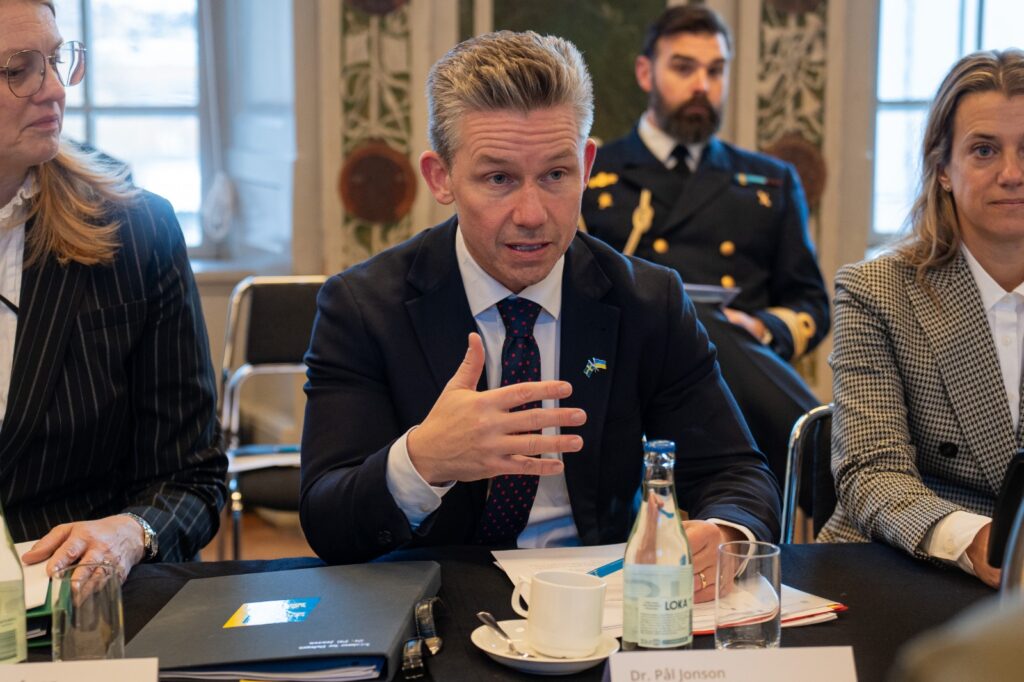

Swedish outlet Aftonbladet reports that Sweden has declared its readiness to use force to protect its airspace. This stance follows recent Russian violations over NATO territory and echoes similar statements from Poland and the UK.
Swedish Defense Minister Pål Jonson stated that Sweden will defend its airspace and has the right to use military force if necessary. He told Aftonbladet that “Sweden will defend its airspace,” and added:
“No country has the right to violate Swedish airspace. Sweden has the right to defend its airspace, with force if needed, and will defend it.”
Jonson noted that the Swedish Armed Forces are already guided by the IKFN directive. This legal framework allows the military to respond to airspace violations, including by using weapons. He emphasized that this includes the right to use force “with or without prior warning.”
Following Russia’s drone incursion into Poland and the Estonian airspace violation by Moscow’s fighter jets, Polish Prime Minister Donald Tusk has issued his own warning, stating Poland will not hesitate to shoot down any aircraft or drones that violate its territory.
“We will shoot down flying objects when they violate our territory and fly over Poland. There is absolutely no discussion about it,” Tusk said at a press conference, according to Reuters, cited by Aftonbladet.
Tusk also stressed the importance of a unified NATO response, saying he must be certain “that all allies will treat this the same way we do.”
British Foreign Secretary Yvette Cooper said that UK forces and NATO allies are prepared for direct armed confrontation with Russia if needed. She said that aircraft entering NATO airspace without clearance “open the door for direct armed confrontation between NATO and Russia,” as quoted by British media.
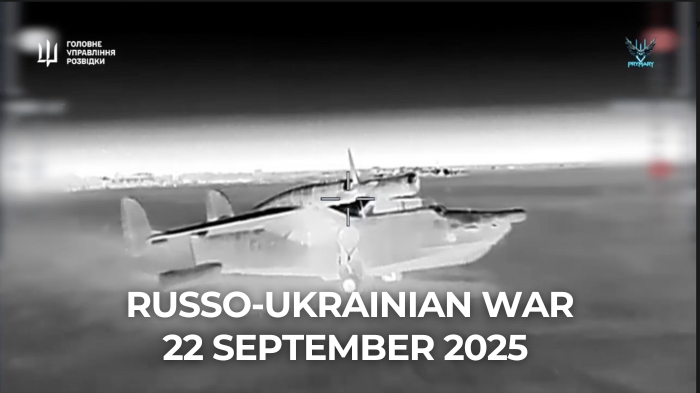

 |
Russia’s D-30SN built with Irish, Swiss, US components destroys 15,000-m² Ukrainian civilian facility in single strike. Foreign parts flow from factories to battlefields, powering strikes that ordinary people cannot outrun. |
 |
Ukraine built weapons, bureaucracy blocked exports. Zelenskyy’s export announcement highlights the urgent need to fix the system blocking Western partnerships. |
. Ukrainian forces are executing a methodical campaign to destroy Russian air defense systems from Donetsk to Crimea, achieving air superiority through system demolition rather than fighter dominance.
ISW: Ukraine war enters critical new phase as Russia builds strategic reserves. Russia is forming a strategic reserve and has signed contracts with nearly 292,000 new recruits, increasing pressure on eastern Ukraine.
Drones hit FSB-linked resort complex in occupied Crimea that allegedly housed high-ranking Russian officials — three died. The main restaurant of the resort was closed for “special service” on the day of the attack. Anonymous sources claim “very important guests” were present and the FSB maintains operations there.
Ukrainian special forces report destruction of Russian S-400 launcher in Russia’s Kaluga Oblast. Ukrainian attack drones struck an S-400 Triumph air defense system in Russia’s Kaluga Region, destroying a missile launcher and its attendant radar unit, Ukraine’s Special Operations Forces (SSO) reported on 22 September.
Ukrainian drones struck railway substation critical for military supply in Russia’s remote Krasnodar Krai. Russian Telegram channels published video footage showing the overnight attack on the “Kanevska” traction substation that serves as a central hub for electrified railway sections.
First time in combat history: Ukraine destroys rare Soviet-era amphibious planes in occupied Crimea. The Be-12 “Chaika” amphibious planes targeted by Ukrainian special forces serve as Russia’s primary tool for detecting submarine movements in Black Sea waters.
. Three civilians died in Zaporizhzhia on 22 September when aerial bombs struck residential neighborhoods during the 40-minute bombardment.
Kremlin agents used EU territory as covert highway to arm kamikaze drones for attacks on Ukrainians. The SBU raids Kyiv and surrounding regions, seizing evidence of a sophisticated operation to improve drone strikes.
Russia controls 1 in 5 “shadow fleet” oil tankers worldwide to dodge sanctions and fund war. The deceptive practices emerged after Europe banned Russian seaborne imports in late 2022 in response to its aggression in Ukraine, forcing Moscow to redirect sales to India and China via longer, more expensive shipping routes requiring additional vessels.
Russian-backed networks target pro-European trajectory of Moldova amid upcoming elections. Nearly 12% of the country remains under Russian-backed authority, a staging ground for destabilization operations.
Moldova detains 74 over alleged Russian-backed election unrest plot
. Authorities say the suspects trained in Serbia on firearms and crowd-control tactics and were allegedly instructed by Russian operatives ahead of parliamentary elections.
Zelenskyy to meet with over 20 world leaders during UN General Assembly. Ukraine will host a global summit on returning kidnapped children during the UN General Assembly.
Ukraine insists on tender to buy 20 Korean electric trains – Deputy PM. Deputy PM Kuleba announced Ukraine would use open tenders to select Korean electric train suppliers during his Seoul working visit, as the country seeks to expand its high-speed rail capacity despite recent Russian attacks on existing rolling stock.
“Intention to kill”: UN confirms Russia’s systematic drone attacks on civilians amount to crimes against humanity. A UN inquiry has documented systematic Russian drone attacks over 300 kilometers of front-line territory, striking civilians, homes, and first responders.
Summit on returning abducted Ukrainian children to take place during UN General Assembly. Zelenskyy will meet with world leaders during a week of high-level diplomacy at the UN General Assembly, the president said during his evening address.
Read our previous daily review here.
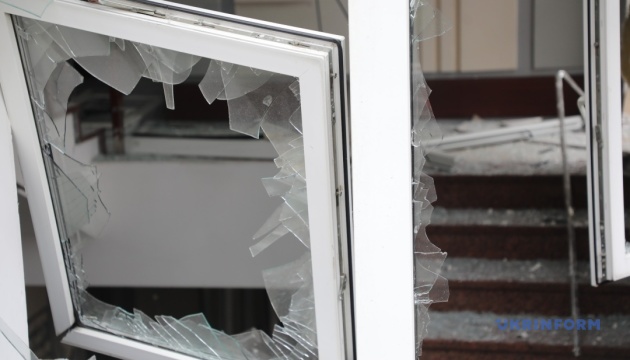

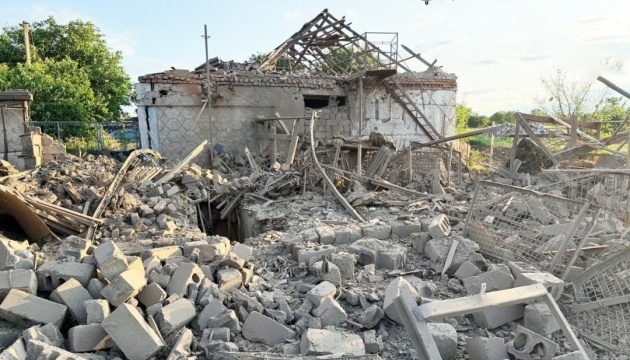

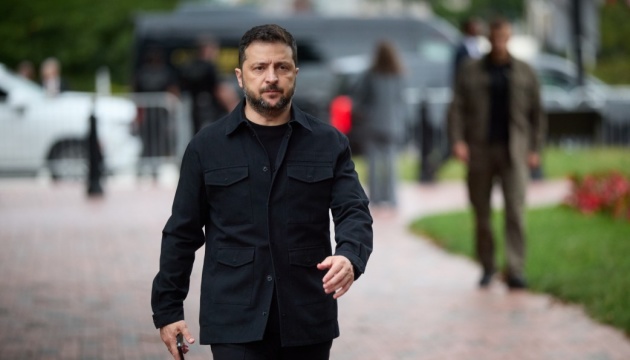

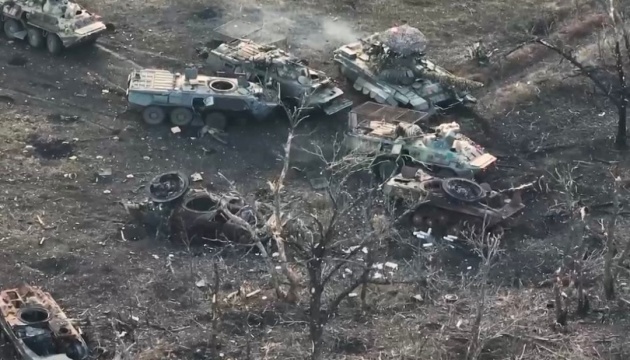

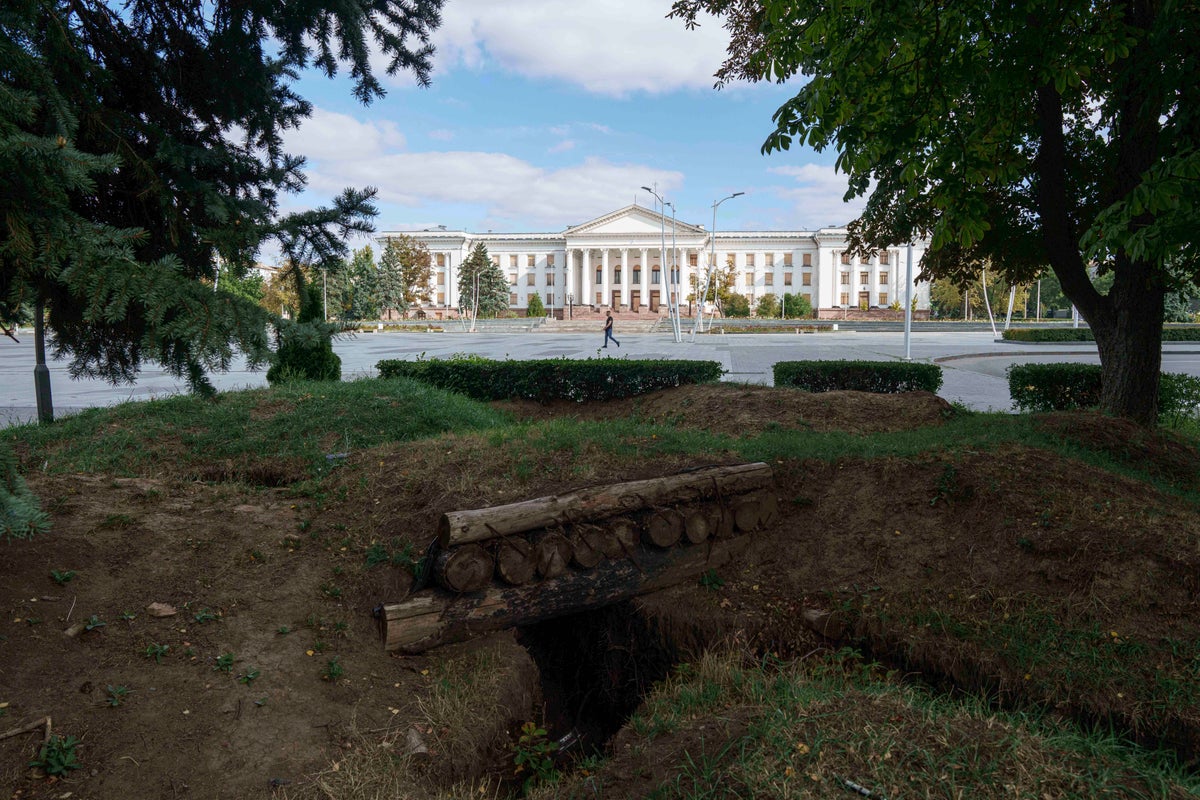

© Copyright 2025 The Associated Press. All rights reserved
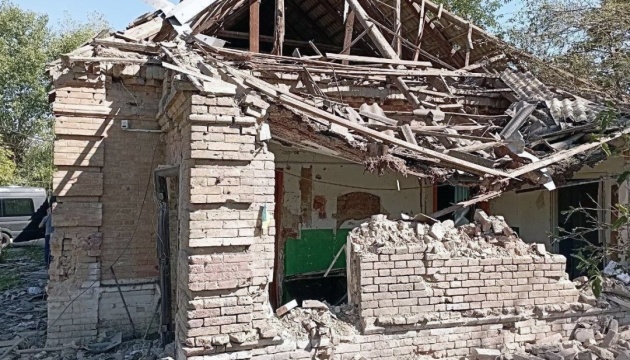

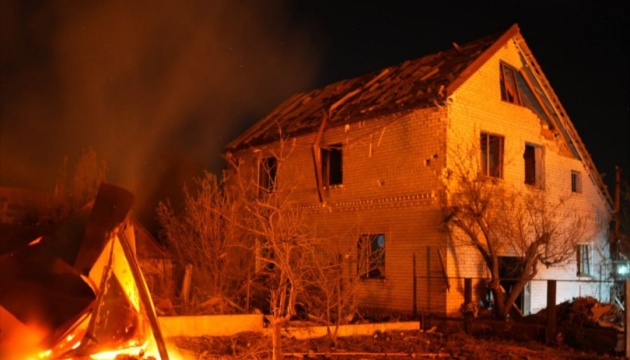





© Lothar Speer


© Copyright 2025 The Associated Press. All rights reserved.
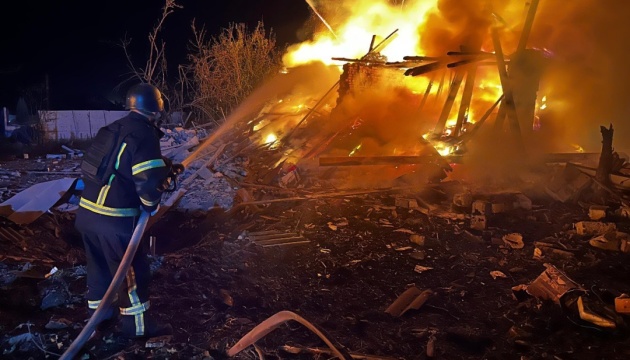

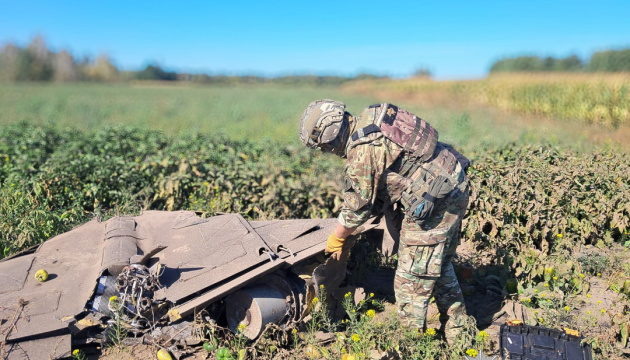


Putin’s airspace incursions risk ‘direct armed confrontation’ with Nato, Yvette Cooper says

© HANDOUT/AFP via Getty Images
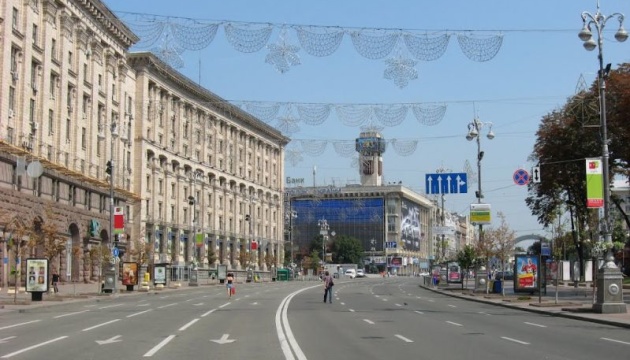

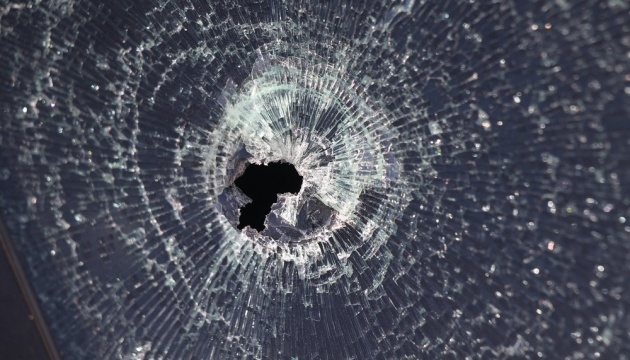

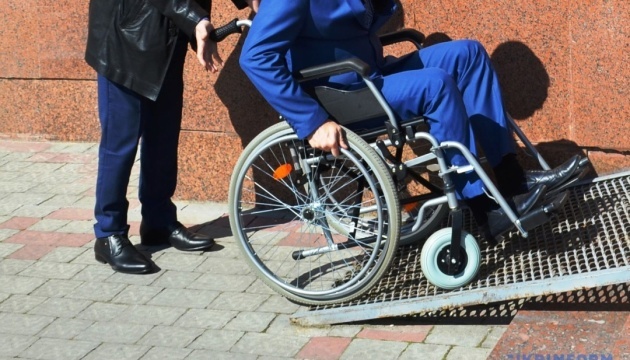

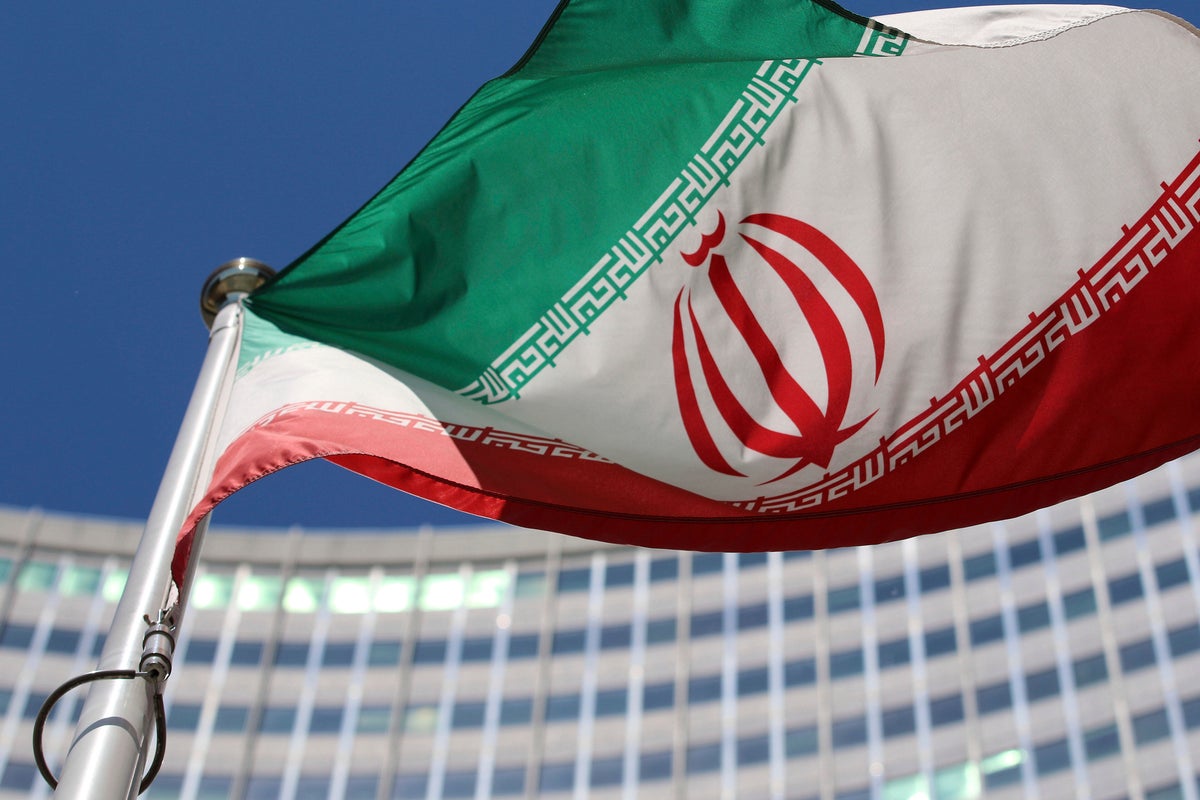

© Copyright 2025 The Associated Press. All rights reserved.
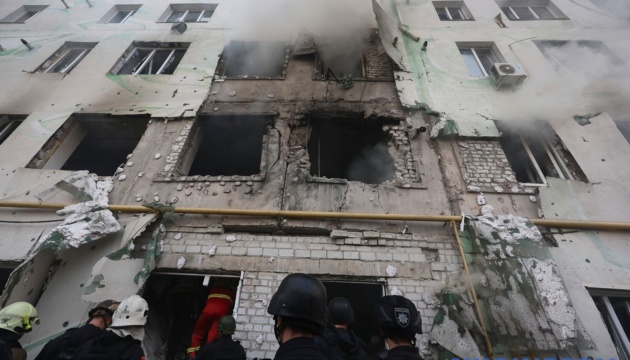



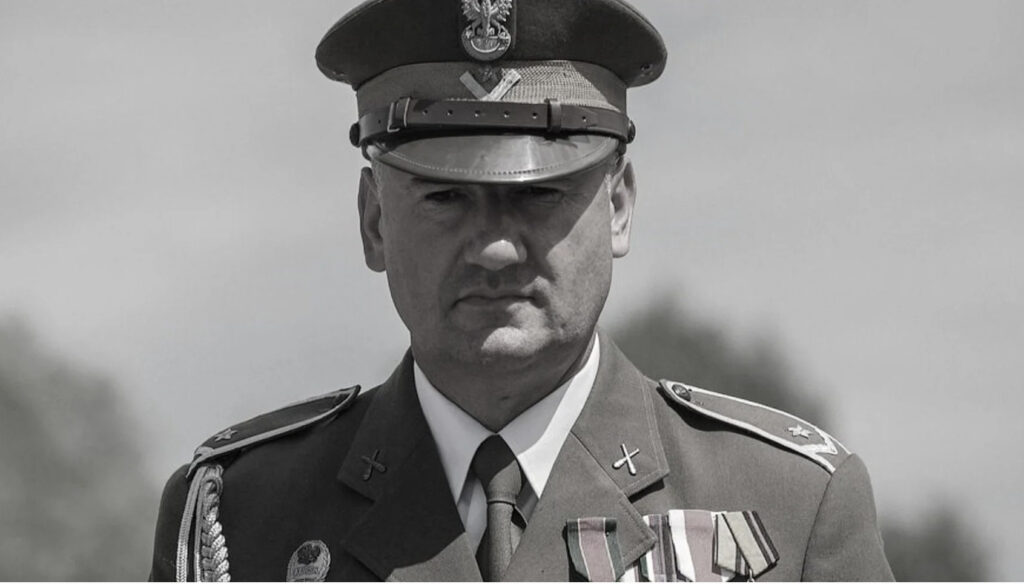

Jerzy Tyc, a Polish citizen who headed an organization dedicated to restoring Soviet war memorials in Poland, has died while serving in the Russian army fighting against Ukraine.
The 60-something Pole had been living in Russia for years before joining Putin’s army under the call sign “Zygmunt.” His death was confirmed by authorities in Russia’s Kursk Oblast on their official Telegram channel.
Tyc’s story reveals the complex loyalties that persist decades after the Cold War ended. He led the Kursk Association, which restored dozens of Soviet soldier monuments and graves across Poland. The work earned him Russia’s “Memory of Defenders of the Fatherland” medal in 2020, personally awarded by then-Defense Minister Sergei Shoigu.
But Polish authorities saw something different. Russian officials claimed Tyc faced “strong pressure from the Russophobic authorities of Warsaw” and was eventually “forced to leave his homeland.” In recent years, he had been living in Russia before joining the military campaign against Ukraine.
Tyc regularly appeared in Russian media outlets where he criticized Polish government policies. According to RMF24, Russian Foreign Ministry spokesperson Maria Zakharova received a group of activists from his association during a televised event several years ago.
Yet in a 2019 interview with TASS, Tyc insisted ordinary Poles supported his work—drawing a sharp distinction between what he saw as hostile government officials and sympathetic citizens.
“For 11 years I have been restoring monuments to Soviet soldiers, traveling throughout Poland. Never has any resident raised a hand against me,” he said. “But this is what officials and politicians say.”
In a 2023 interview with the Russian portal gornovosti.ru, Tyc outlined his background, explaining that he had graduated from military school but left the army in 1989 when political changes began in Poland.
He subsequently served in police before dedicating himself to what he called fighting “falsification of history, destruction of monuments, war with the dead.”
“Poles and Russians fought together against a common enemy, but this history is inconvenient for the current Polish authorities, who would prefer to forget about it,” Tyc stated in the interview. He expressed belief in the “return of Polish-Russian friendship.”
That belief ultimately led him to die fighting against Poland’s neighbor and ally. Russian authorities said he “remained faithful to his beliefs until the end, fighting neo-Nazis”—the Kremlin’s standard propagandist justification for its aggression in Ukraine.
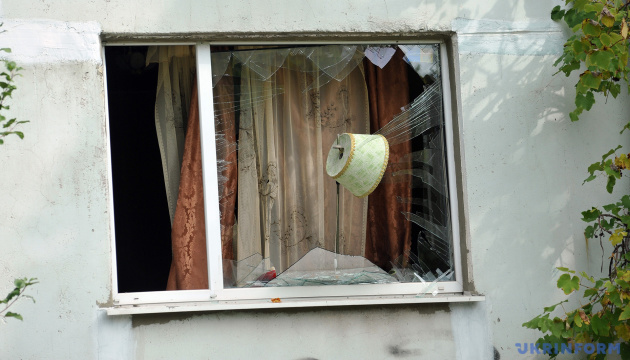

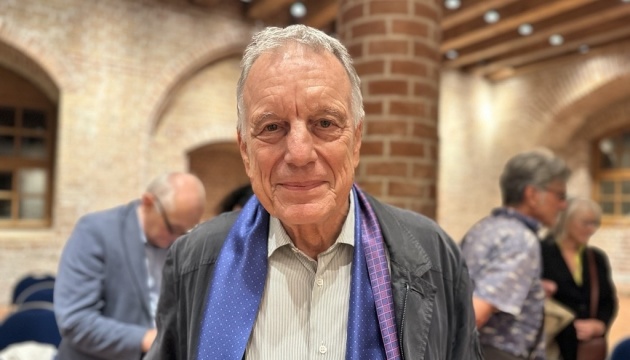

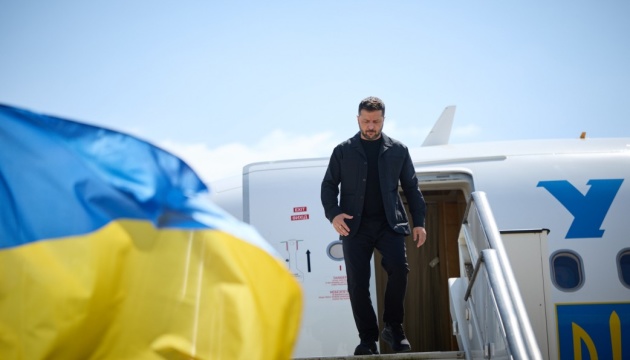

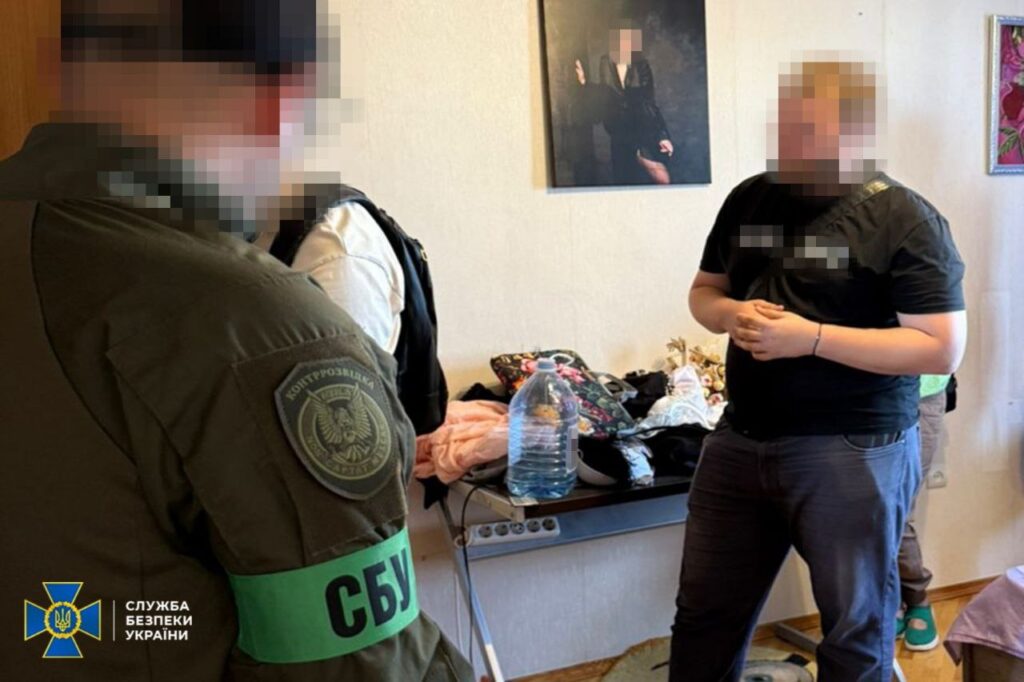

Russia has built a secret EU network to supply Ukrainian SIM cards for its kamikaze drones. Ukraine’s Security Service (SBU) has recently apprehended FSB agents who organized a large-scale operation to supply Ukrainian SIM cards to Russian combat drones through European Union countries.
Agents purchased Ukrainian SIM cards and routed them via the EU to Naberezhnye Chelny and Yelabuga in Tatarstan, the largest drone manufacturing hub in Russia. The SBU is conducting investigations to hold all network participants accountable within EU territory.
Russian operatives recruited residents from Kyiv Oblast, including a former law enforcement officer, as well as employees of Ukrainian mobile operators, to collect intelligence “from within.”
This allowed the occupiers to improve communication and navigation for their combat drones.
During raids, authorities seized smartphones containing evidence of contacts with FSB handlers and foreign accomplices, as well as SIM cards prepared for shipment to Russia. The detainees face charges of high treason under martial law, carrying potential life imprisonment and property confiscation.
The operation was carried out by SBU officers in Kyiv and Kyiv Oblast with support from the Internal Security Department of the National Police and the Kyiv City Prosecutor’s Office.
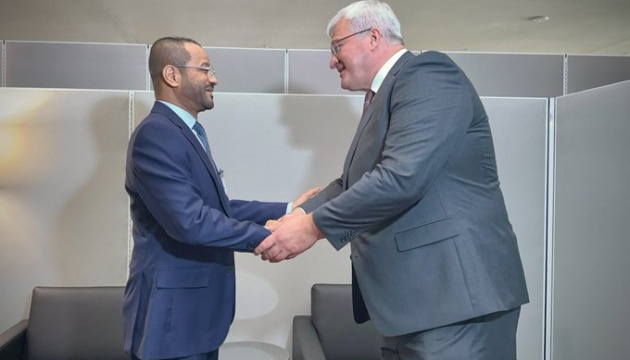





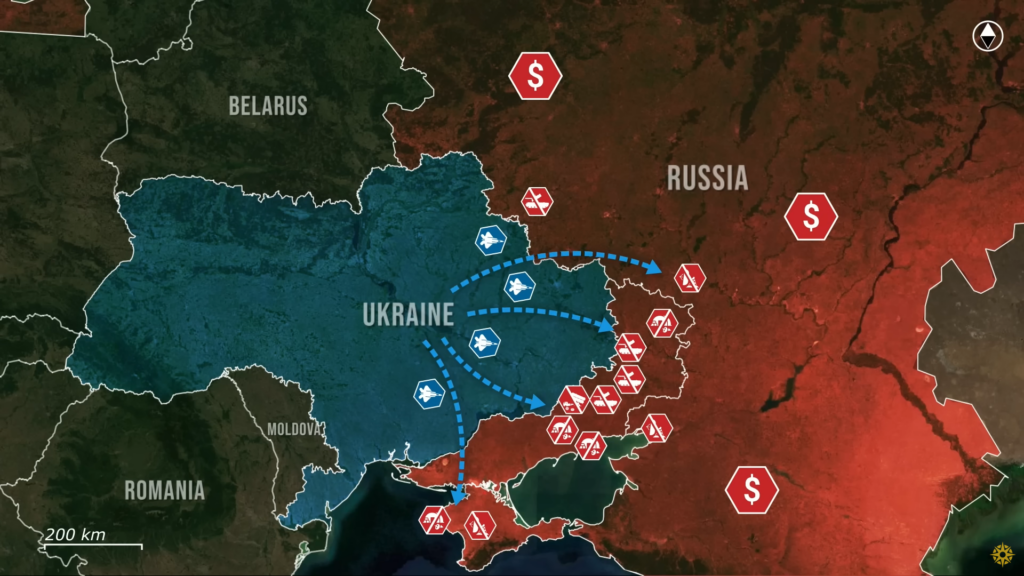

Today the biggest news comes from the Russian Federation.
Here, Ukrainian forces are systematically striking Russian air defense systems across hundreds of kilometers.
After months of preparation, Kyiv’s strategy is now fully visible: destroy radars, launchers and control modules until the skies are open and air superiority is established.
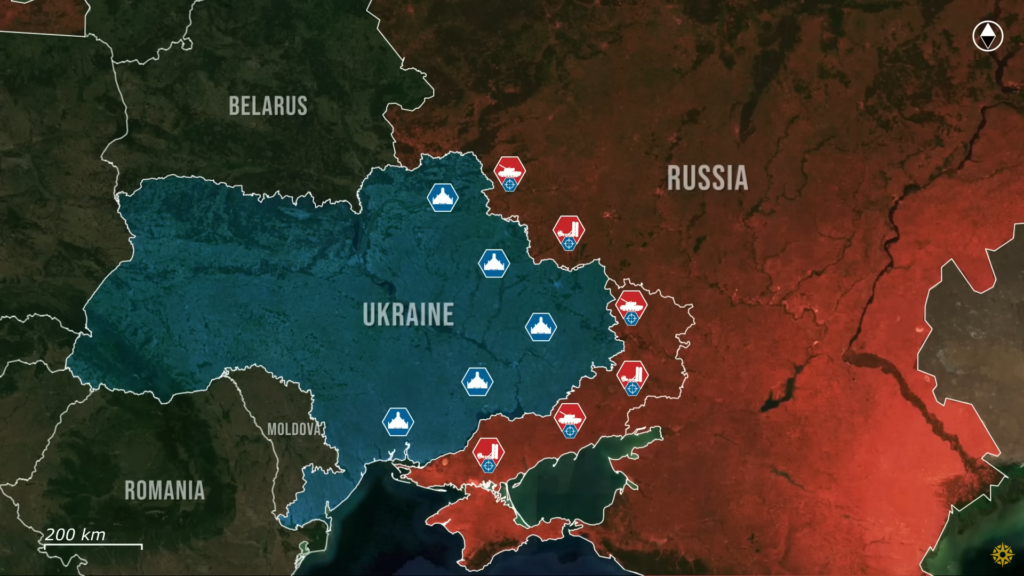
A few recent operations reveal the scale and precision of Ukraine’s effort, as near the town of Bukhoyavlenka in the Donetsk region, a Russian Buk-M1 launcher was hunted in real time.
A reconnaissance drone tracked it to a building before a bomber drone began tearing the roof apart, finally dropping an explosive directly onto the system and causing a massive ammunition explosion.
In Zaporizhzhia, Ukrainian forces destroyed a rare control module of a Barnaul-T air defense control system, a central node that links radar with launchers and can coordinate multiple launches at the same time.
In Rostov, one of Russia’s Neboyu long-range radars was struck overnight, with fires confirmed by NASA FIRM satellites.
Further north, another radar site of a Sobkatu system in Voronezh was hit, reportedly destroying its antenna.
And in Crimea, Ukraine neutralized Podlet and Nebo-M radars, a sign that even protected sites deep within the peninsula are vulnerable.
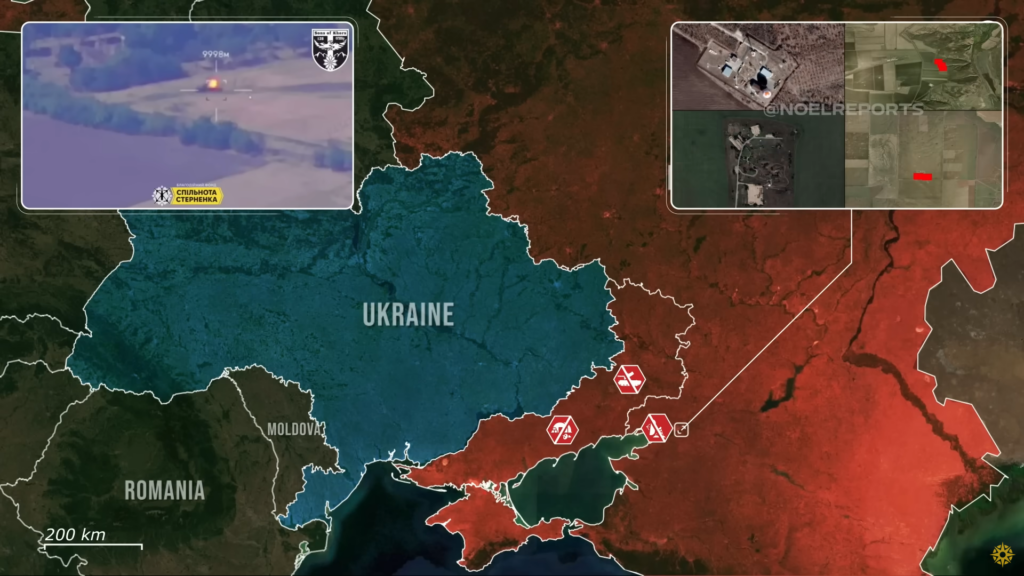
These attacks span thousands of kilometers, but share a clear operational goal of systematically dismantling the infrastructure that keeps the air defense network functional.
By knocking out early warning radars and central coordination modules, Ukrainian forces create time gaps in detection and response while effectively blinding connected missiles.
By destroying intercept launchers with their own radar and control module built in, such as the Pantsir or Buk systems, they undermine Russia’s ability to patch holes in their layered defenses.
By finally targeting systems, like Barnolty, which coordinate radar data, firing orders, and even external assets, they sever the entire command structure and ability of the Russian network to work together.
The more fragmented Russia’s air defense grid becomes, the more exposed its rear area is to follow-up strikes from Ukrainian bombers, drones, or cruise missiles.
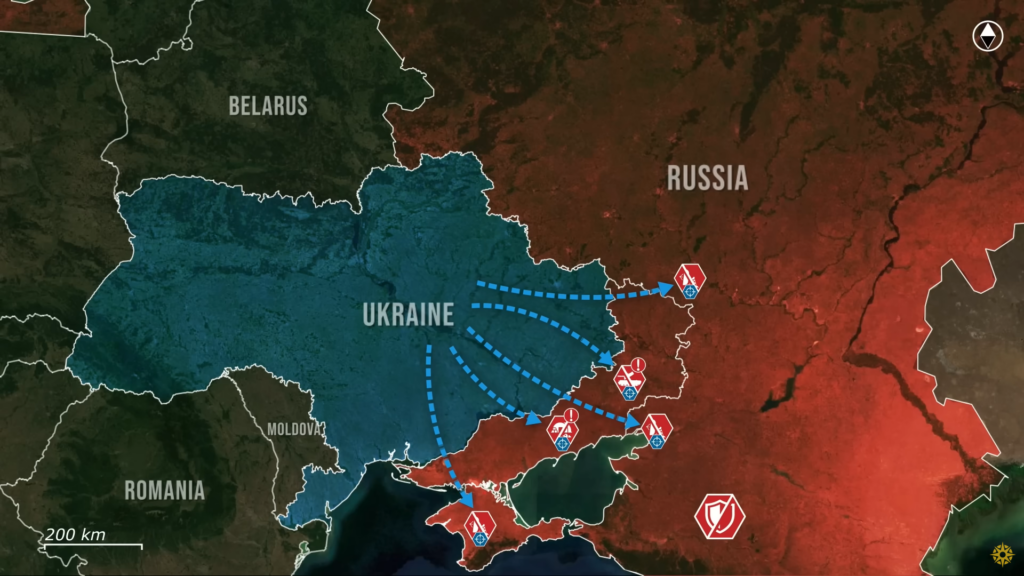
Near Orlivka in Donetsk, Ukrainian reconnaissance drones adjusted fire onto Russian OSA and Strela-10 launchers, with artillery finishing the job, a typical frontline engagement against short-range systems.
Heavier bomber drones are used for structural targets or soft-skinned vehicles, as in the Bohoyavlenka and Oleksievka strikes, where they ignited stored ammunition and set several launchers ablaze.
Shark UAVs frequently assist in locating and guiding these strikes to their targets. For deeper targets, fixed-wing kamikaze drones are launched to strike radar installations in Rostov, Voronezh or Crimea.
And in rare cases, Ukraine has used their fighter jets for complicated set-and-dead missions to suppress or destroy enemy air defenses.
Geolocated footage already shows one of such missions, with the MiG-29 fighter jet launching radar-seeking missiles to target and strike Russian Tor and Buk systems in Zaporizhzhia.
The range and variety of these tools show that Ukraine is no longer just improving, it is executing a coordinated multi-domain campaign to disable Russian air defenses.
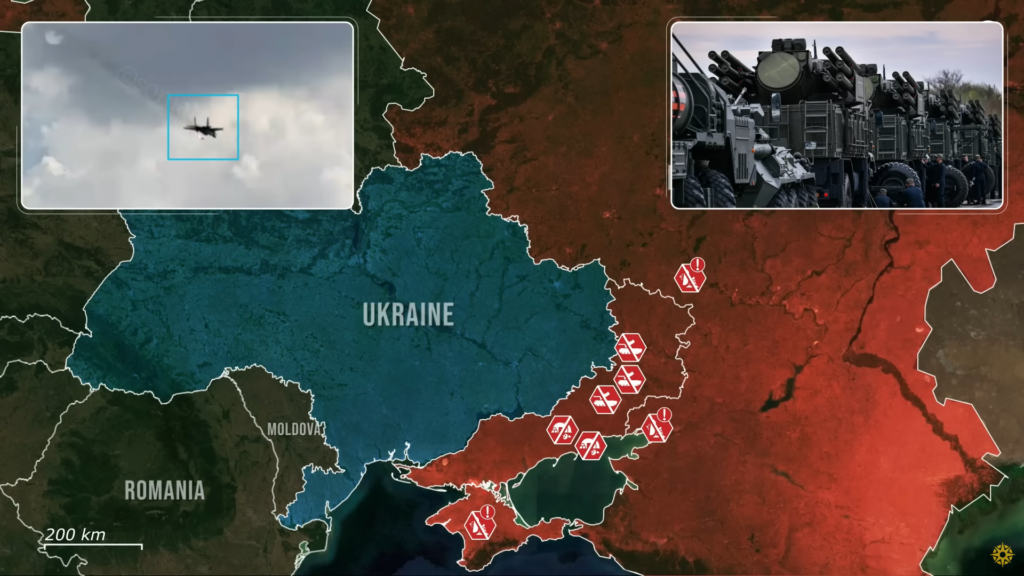
The campaign continues daily and has now widened in scope, as in Zaporizhzhia, multiple S-300B systems have been destroyed in separate strikes north of Oleksiivka, with kamikaze drones eliminating another Buk-M3 nearby.
In Western Crimea, Ukrainian drones targeted relay sites near known air defense positions, with fire markers visible even on satellite imagery.
In Luhansk, partisans blew up a Russian mobile air defense group guarding a repair base, reportedly linked to earlier atrocities in Bucha.
North of the border in the Kursk region, a Russian surface-to-air missile site was destroyed near the village of Rozhava, making it the northmost confirmed strike of the campaign.
From Krasnodar Krai to Kursk, Ukrainians are striking Russian air defenses and creating a kill zone up to 300 kilometers deep into Russian-controlled territories.
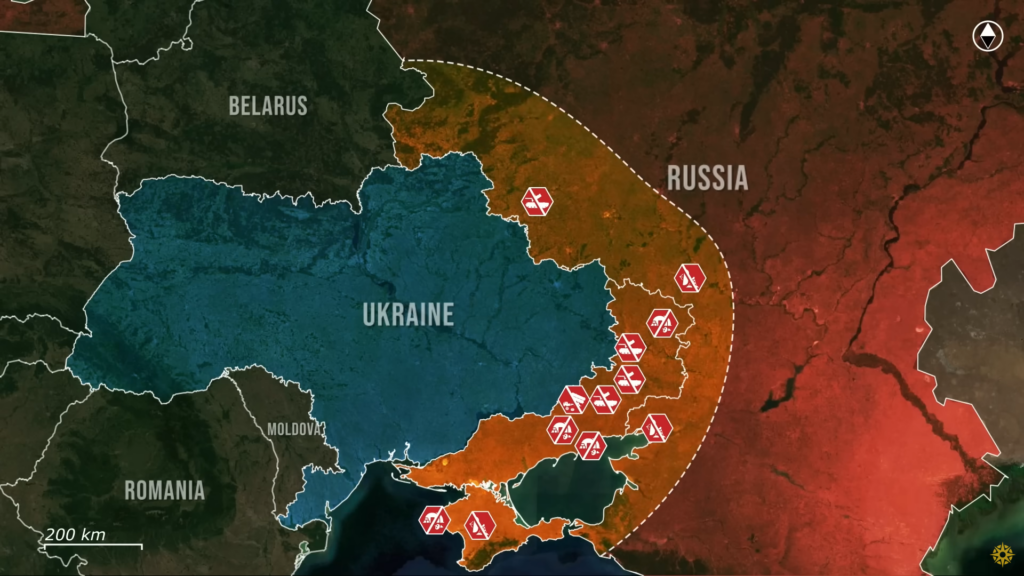
Overall, Ukraine is not just blinding Russian air defenses, it is taking apart the system that makes them effective.
Russia air defense systems are not infinite, each destroyed S-300 or Buk system costs millions to replace, requires specialized parts and strains an already overburdened military industry to meet wartime needs.
This is not air superiority in the classic sense of fighter dominance, but a complete demolition of radar, control and interceptor assets to give Ukrainian air power freedom of movement across the front line and deep into occupied territory, as the Ukrainian air strike offensive only seems to intensify.
In our regular frontline report, we pair up with the military blogger Reporting from Ukraine to keep you informed about what is happening on the battlefield in the Russo-Ukrainian war.


The Kremlin is reportedly preparing a large-scale operation to derail Moldova’s European trajectory and weaken President Maia Sandu’s government. According to Bloomberg, Moscow aims to discredit the ruling party, Action and Solidarity (PAS), and destabilize the country ahead of the parliamentary elections on 28 September.
Moscow has historically exerted influence on the country through political networks, disinformation campaigns, and covert operations. Since the early 1990s, Russian-backed forces have maintained de facto control over Transnistria, a narrow strip of land bordering Ukraine that comprises roughly 12% of Moldova’s territory.
Leaked documents outline multiple tactics: recruiting Moldovans abroad to vote in an organized manner, staging protests and calls for government resignation, running large-scale disinformation campaigns on social media, and leveraging compromising material against officials.
Young men from sports clubs and criminal groups are expected to be mobilized for provocations during and after the elections.
On Monday, 22 September, Moldova already detained 74 people suspected of preparing violent unrest.
Officials said the suspects had traveled to Serbia for training that included firearms handling, crowd-control tactics, and provocations during protests, allegedly under instruction from Russian citizens. Participants were reportedly paid around €400 each.
European authorities warn that Russia is highly likely to attempt most of these measures. Support for pro-Russian parties in Moldova ranges from political consulting to direct funding.
President Maia Sandu has previously warned of voter bribery, cyberattacks, paid protests, and disinformation campaigns, urging international partners to strengthen monitoring of democratic processes.
These elections will shape Moldova’s European path. Recent polls suggest PAS may retain the lead, but without a parliamentary majority, leaving room for political maneuvering by the opposition, which is actively supported by Moscow.
The situation remains tense, and Russian attempts to influence the outcome could determine the country’s political direction for years to come.


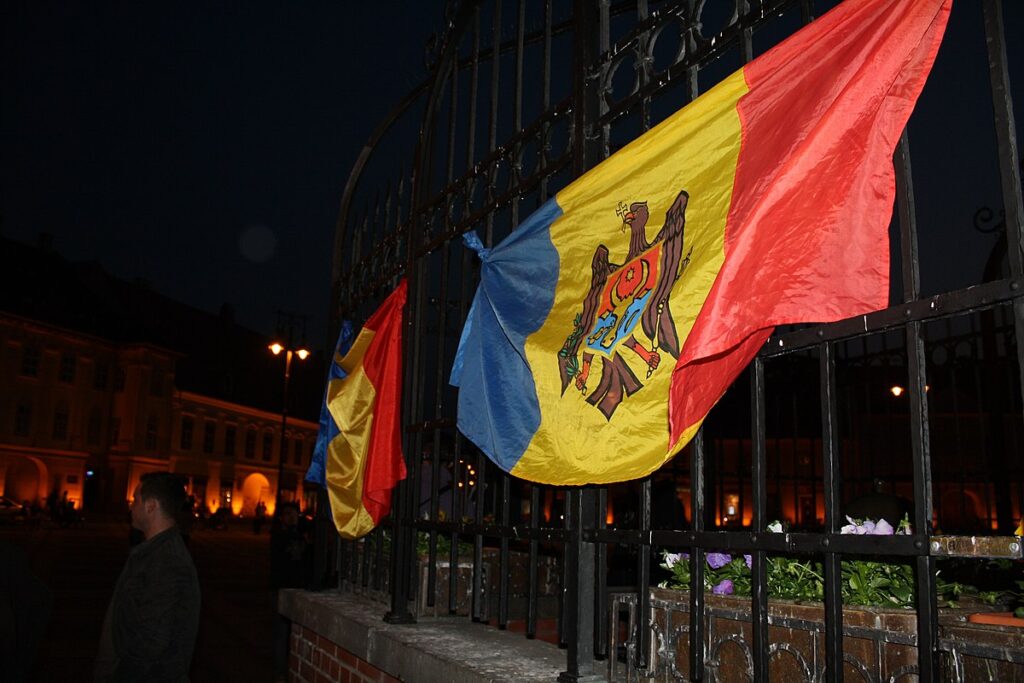

Authorities in Moldova said Monday they detained 74 people suspected of preparing violent unrest ahead of the country’s parliamentary elections on 28 September, Moldovan media outlet NewsMaker reports.
The arrests highlight concerns about Russian interference in Eastern Europe’s fragile democracies. Moldova, a small former Soviet republic bordering Ukraine and Romania, has recently pursued closer ties with the European Union.
Moscow has historically exerted influence on the country through political networks, disinformation campaigns, and covert operations. Russian-backed forces have maintained de facto control over Transnistria, a narrow strip of land bordering Ukraine that comprises roughly 12% of Moldova’s territory, since the early 1990s.
Analysts say destabilization efforts ahead of elections could undermine Moldova’s pro-European government and threaten the country’s internal security.
Officials said the suspects had traveled to Serbia for training that included firearms handling, crowd-control tactics, and provocations during protests, allegedly under instruction from Russian citizens. Participants were reportedly paid around €400 each.
The investigation, led by the Organized Crime Prosecutor’s Office and the General Police Inspectorate, began in July 2025.
Officials said some recruits were lured to Serbia under the pretext of religious pilgrimages before being drawn into the training program. Police said they were also taught how to resist detention by authorities.
Alexandru Musteața, head of Moldova’s intelligence service, said the operation was coordinated by Russian security services, with planning on the ground in Moldova led by Andrei Pavlov, who allegedly directed recruitment through a network linked to fugitive oligarch Ilan Shor.
Communication was primarily via Telegram to maintain anonymity, Musteața said.
Authorities carried out more than 250 searches across the country, including at four prisons, and seized weapons, ammunition, camouflage clothing, tents, passports, and other materials.
Police said links to Moldovan political parties and criminal groups were uncovered during the investigation. Socialist Party leader Igor Dodon said four party members were among those detained.
If convicted, the suspects face four to eight years in prison.
The detentions come days after reporting by Bloomberg and the BBC highlighted Russian attempts to influence Moldova’s elections through disinformation and covert operations.
President Maia Sandu has warned that the country’s independence and pro-European course are under direct threat.
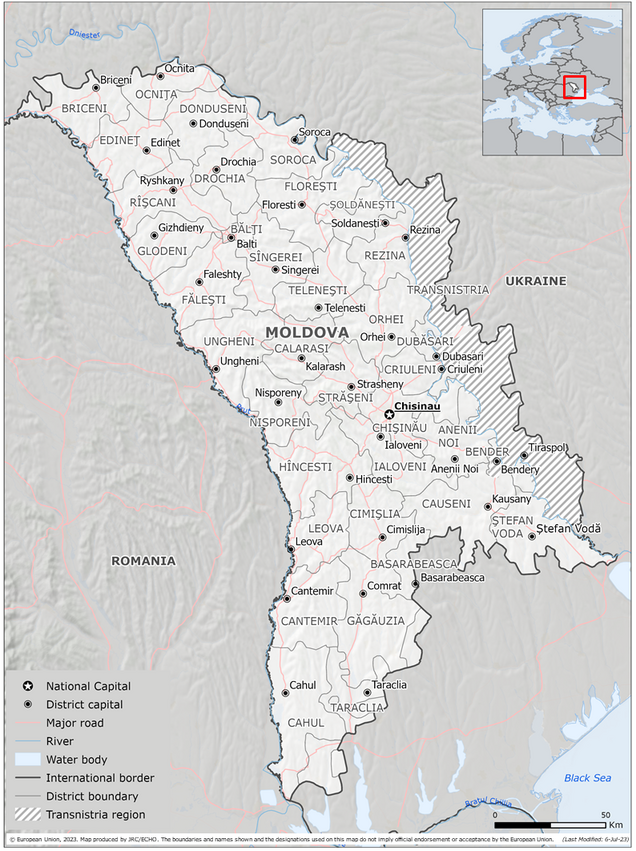


A Ukrainian military-intelligence portal that publishes information about sponsors and accomplices of Russia’s aggression has uncovered the production network behind the Russian guided glide bomb D-30SN. Identified suppliers include manufacturers from Ireland, China, Switzerland, the United States, Taiwan, and Japan.
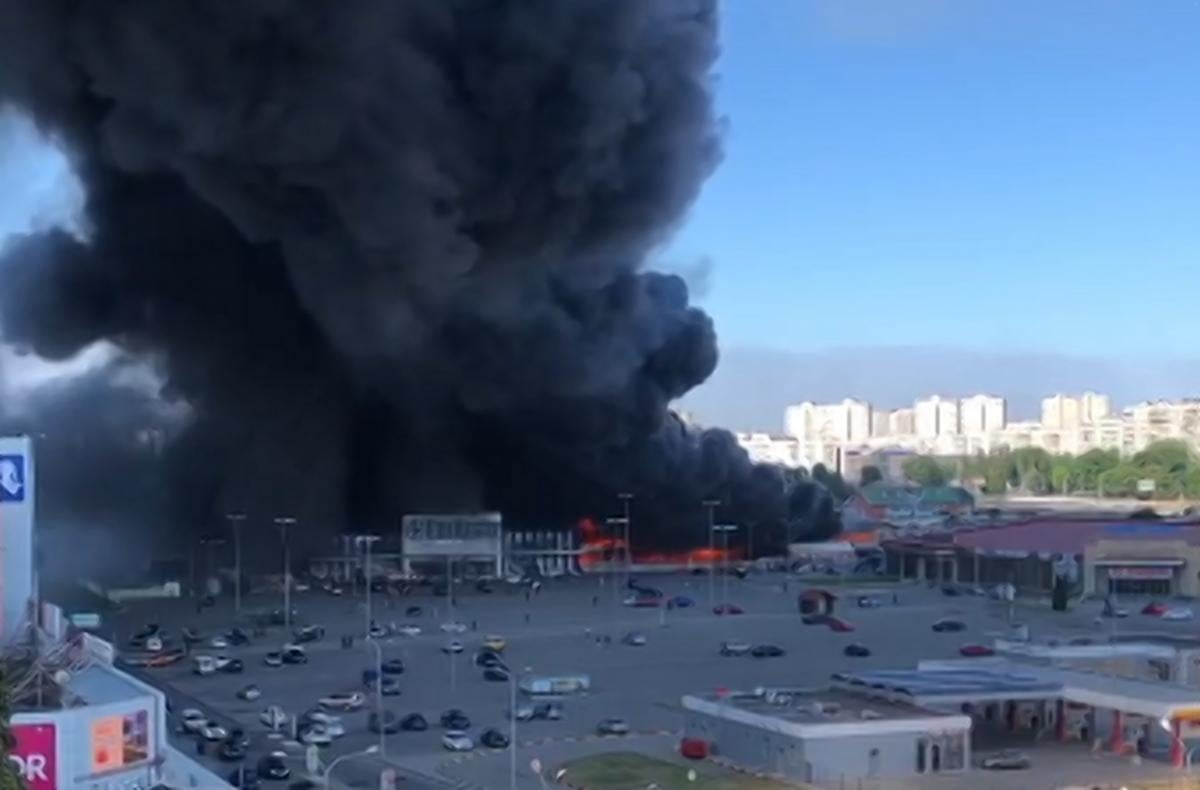
The intelligence service presented a list of 36 enterprises involved in its production cooperation; some of these still evade sanctions pressure.
This bomb is not a simple free-fall weapon. It is fitted with aerodynamic surfaces like wings or special gliding surfaces that allow it to glide, significantly extending its flight after release from an aircraft. Its guided accuracy enables large-scale destruction.
To operate under electronic warfare conditions, the D-30 SN’s navigation system includes a satellite navigation module with an adaptive antenna array (CRPA) or the “Kometa-M8” familiar from other systems. This provides the navigation signal with resilience to jamming and interference commonly used to disrupt guided munitions.
The D-30SN can be carried by Su-34, Su-30SM, Su-35, Su-24 aircraft, and the S-70 “Okhotnik” UAV. When released from altitudes of 12–15 km, its effective range is up to 100 km.
Preliminary reports indicate that these glide bombs can also be launched from ground platforms, such as 300 mm Tornado-S MLRS, using a booster motor.
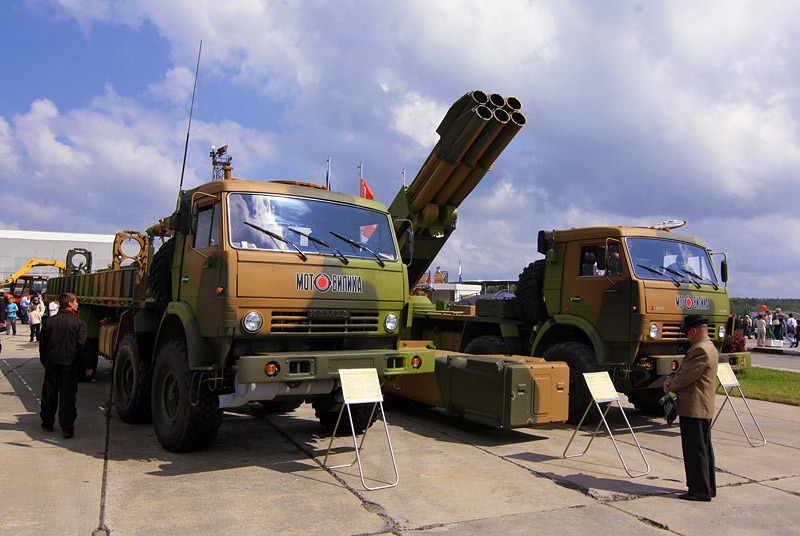
Conventional air-defence systems do not always intercept D-30 glide bombs because of their range, high accuracy, and gliding characteristics.
The patent holder and main organizer of UMPB production is the Russian corporation Tactical Missile Armament Corporation (KTRV). The principal manufacturer is an enterprise within the corporation, the JSC Concern “Granit-Electron”.
Dozens of enterprises involved in D-30SN production are long known for their ties to Russia’s military-industrial complex and are already under sanctions by most members of the sanctioning coalition.
Ukrainian intelligence has found a part from the Irish manufacturer TE Connectivity inside this bomb — a low-level signal relay IM06 12VDC.
TE Connectivity has operated in industrial technologies for about 80 years. The relay is an important element in the electrical control systems of a complex navigation-guided bomb, ensuring stable operation in combat conditions. In 2024, TE Connectivity agreed to pay $5.8 million in fines related to illicit supplies of goods, including wires and connector assemblies, connected with certain military projects in China, Reuters reports.
Ukraine also found a Chinese sensor MT6701 STD 243 produced by Shanghai MagnTek Microelectronics Inc. (MagnTek). This company has been sanctioned by the US in the context of supplying microelectronic components to Russia. Nevertheless, these parts continue to be found in Russian weapons, which have killed at least 13,800 civilians in Ukraine (not counting the hundreds of thousands of victims in occupied cities such as Mariupol).
Also among the identified details was a Schottky diode SS54 by Yangzhou Yangjie Electronic Technology Co., Ltd. The company is based in Yangzhou near Shanghai and has ties to several sanctioned Russian enterprises, including Simmetron Electronic Components, which supplies the Russian military. Despite sanctions, supplies continue and contribute to Russia’s battlefield capabilities in Ukraine.
Yangjie is the parent company of the US manufacturer Micro Commercial Components (based in California) and has production and R&D facilities in China, Vietnam, Japan, and Taiwan. This makes the company’s role notable in the context of sanctions circumvention and support for Russia’s military industry.
Another Chinese component found is a step-down DC/DC converter by XLSEMI, which has also been blacklisted by the US and other Western countries. Nevertheless, its deliveries persist.
Ukraine’s intelligence has uncovered a quartz resonator ATS8SASM CTS172131 by American CTS Corporation in a deadly D-30 SN bomb. CTS Corporation appears on lists of companies whose products or components have repeatedly been found in Russian weapon samples on Ukrainian battlefields despite sanctions. This points to challenges in export-control enforcement and the difficulty of stopping illicit flows of military-related technology to Russia.

Another US company spotted in the list is Linear Technology Corporation (Analog Devices), which supplies DC/DC converters LTM4613V and LTM4615V. The US and EU have also sanctioned it for supplying microelectronic components to Russia, including for Orlan-10 UAV production.
Two Swiss companies were also detected in the D-30SN: STMicroelectronics and U-blox. Since the start of Russia’s full-scale invasion in 2022, U-blox has halted sales to Russia, Belarus, and the occupied territories of Ukraine.
Nevertheless, U-blox modules have still been found in Russian-made reconnaissance drones. The company explains that such components could have been removed from civilian devices such as e-scooters, e-bikes, and cars and repurposed for military use.
The ability of Russian President Vladimir Putin to circumvent Western sanctions is one of the major shortcomings of the Western response to the war in Ukraine. Rather than becoming economically isolated, Russia, after more than three years of war, feels relatively confident.
According to a New York Times, Russia’s technology imports often begin when US chipmakers sell products to international distributors. Chip manufacturers are not legally required to track the downstream destinations of their goods.
What should governments do?
What should manufacturers and distributors do?
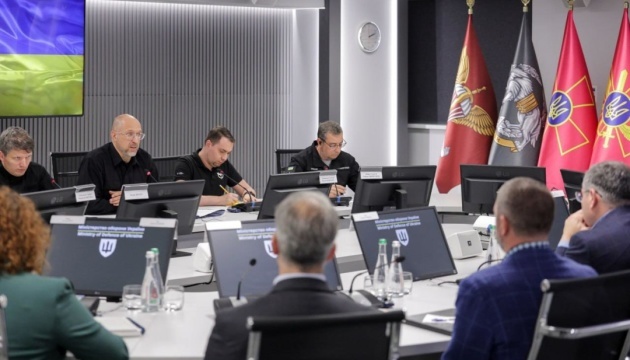

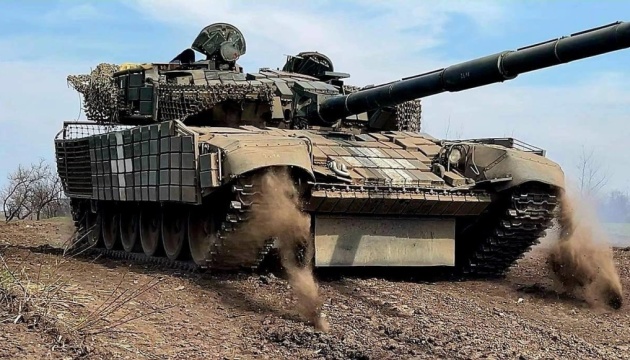

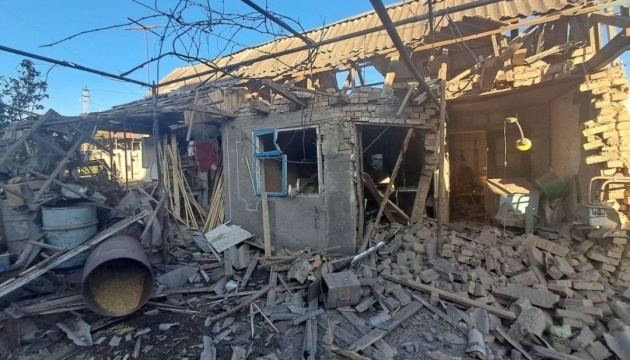

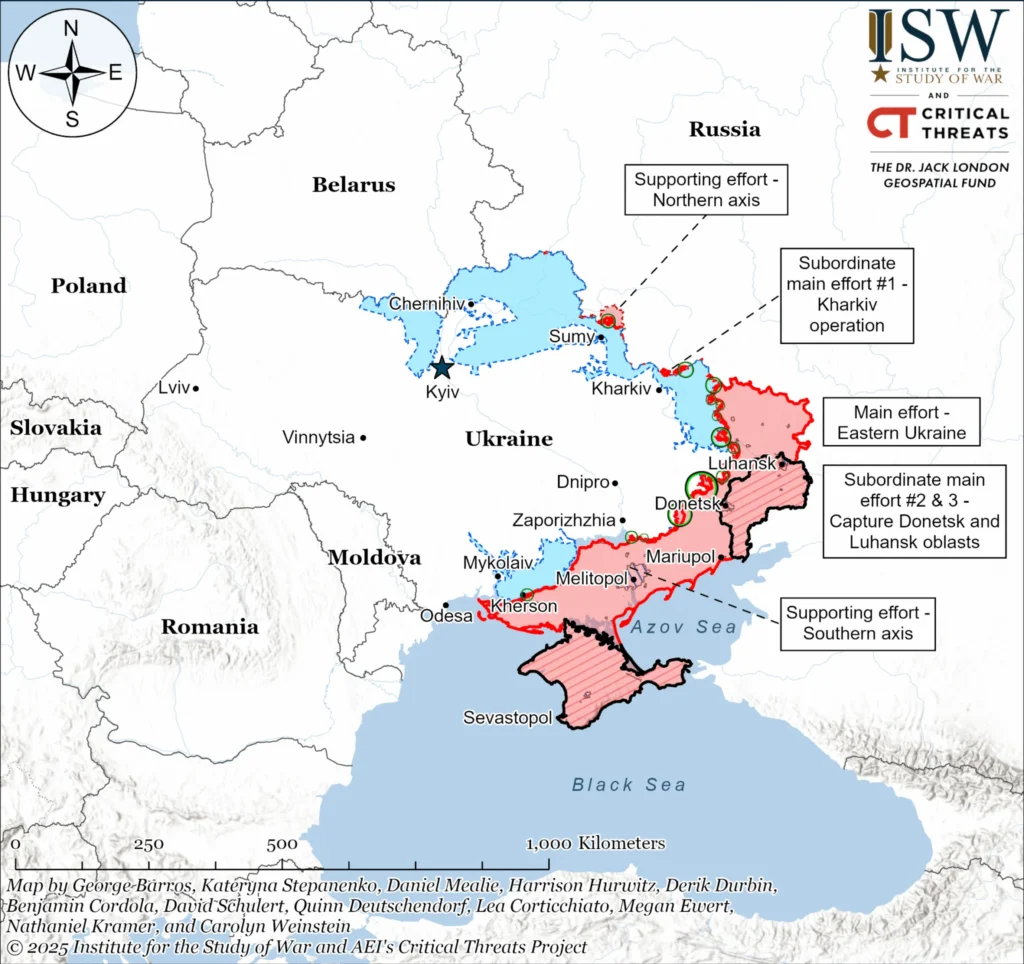

According to ISW: for the first time since its full-scale invasion began, Russia has achieved what had long eluded the Kremlin: operational breathing room. Since January 2025, Moscow has signed contracts with 292,000 new recruits more than the active armies of most European countries allowing fresh troops to be held back from the front lines.
Russian troops are attempting to advance in the different directions but Ukrainian units demonstrate flexible defense and a high level of coordination.
Falling Russian casualties in August and September have enabled the formation of long-anticipated strategic reserves key for any future large-scale offensive. Meanwhile, Ukrainian partisans are striking deep behind enemy lines. On 21 September, the Atesh group sabotaged a key railway in Russia’s Smolensk Oblast, disrupting supply lines to a major plant producing Kh-59 cruise missiles, drones, and aircraft parts. Over 10 control elements were destroyed, potentially halting deliveries for weeks.
ISW reported that in the north, Russia continues to build buffer zones along the Sumy and Chernihiv borders. This is not just about defense it’s about staging future offensives. Deployed units include Black Sea Fleet marines, the 72nd Motor Rifle Division, elements of the elite 106th Airborne Division, and the Anvar special unit.
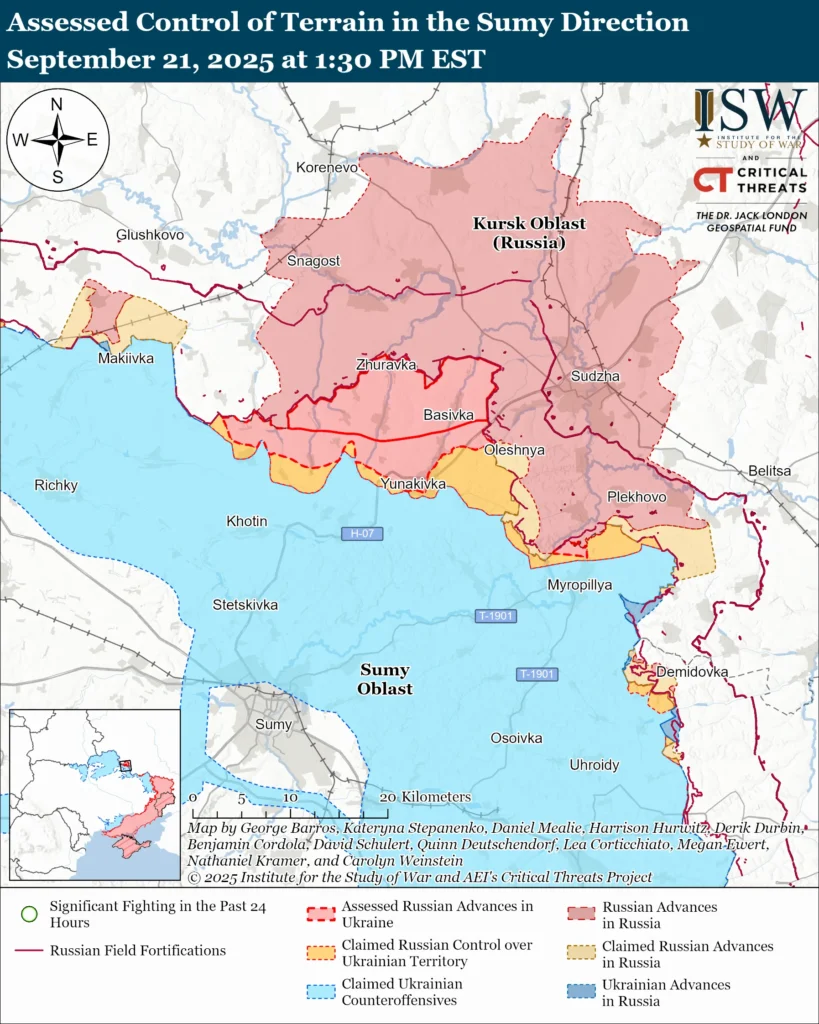
In Kharkiv Oblast, the battle for Vovchansk reflects Russia’s attritional approach. Waves of infantry attack across the Vovcha River under relentless drone surveillance and strikes. Near Kupiansk, Russian troops have seized Kindrashivka and pressure Ukrainian positions daily. Analysts say Russia trades lives for minor territorial gains.
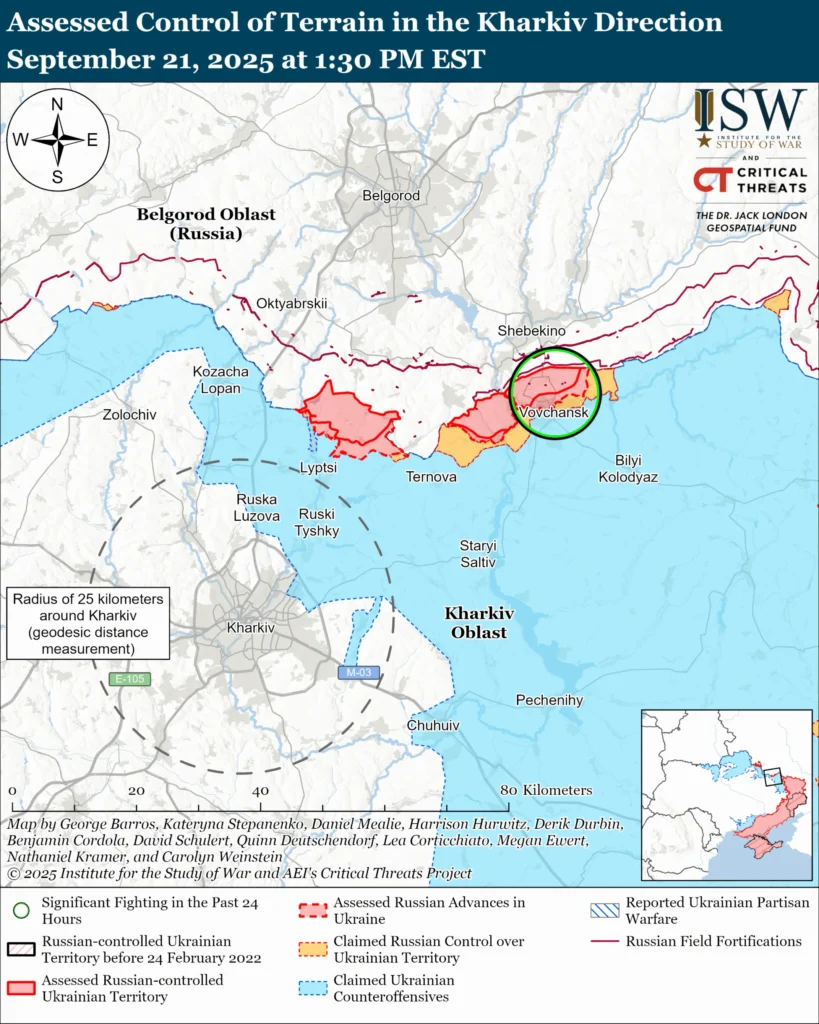
In the Borova-Lyman direction, Russian forces attack from multiple directions. Pro-Russian sources claim the capture of Shandryholove, though independent confirmation is lacking. In Donetsk, most attacks have failed, but near Pokrovsk and Velykomykhailivka, Russia has advanced, deploying six battalions against single Ukrainian units.
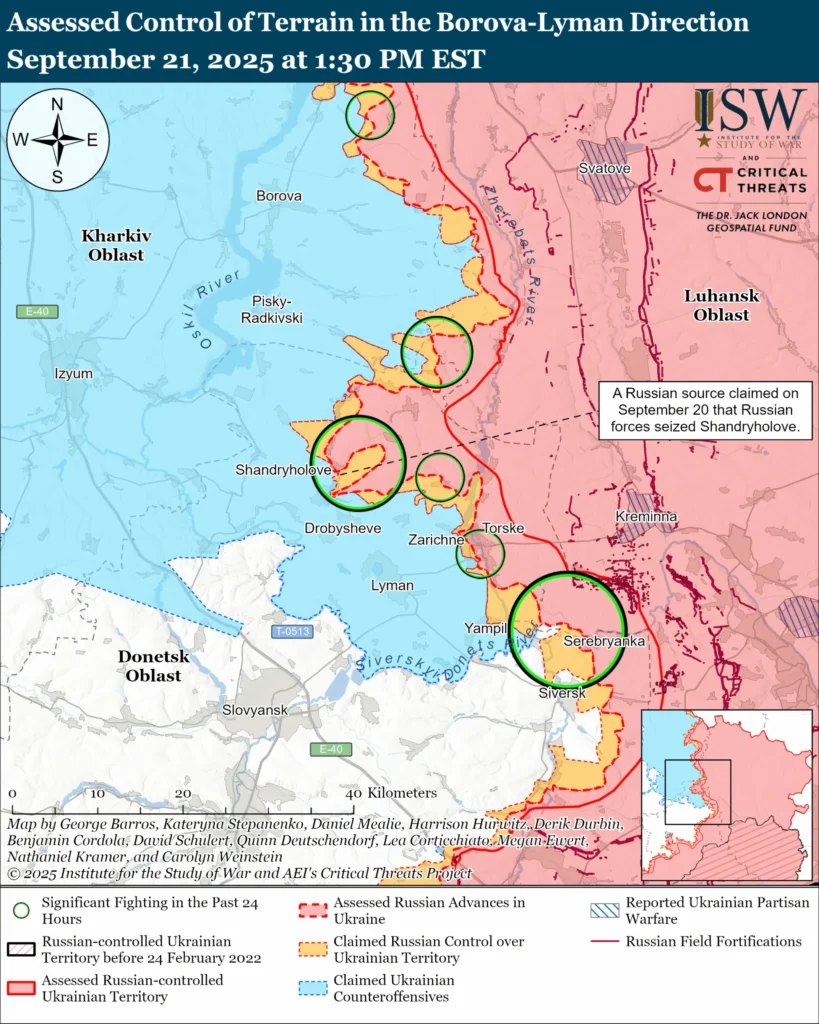
ISW mentioned that Russian progress stalls, attacks on civilian infrastructure escalate. On the night of September 20–21, Russia launched 54 drones; 33 were downed, the rest hit targets in Kharkiv and Dnipropetrovsk. In one week, Moscow fired over 1,500 drones, 1,280 glide bombs, and 50 missiles. Over 132,000 foreign-made components have been found in downed Russian weapons proof of widespread sanctions evasion.

